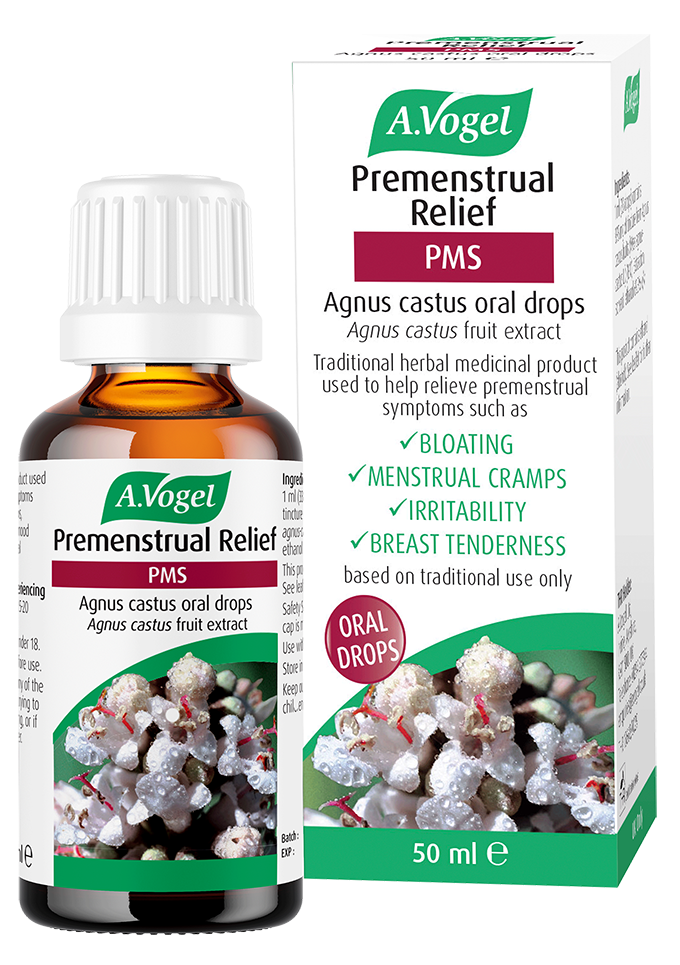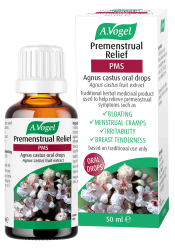An introduction to periods and PMS
Premenstrual syndrome (PMS) is characterised by a range of symptoms a women experiences each month around the time of her period; typically in the few days beforehand.
PMS is common and is thought to affect between 20 and 30% of women, but how does this affect your period?
No two women are the same and it is often hard to differentiate low grade PMS from ‘normal’ period symptoms. Diagnosing PMS isn’t always easy; there is no definitive test to do so. Generally the severity and scope of your symptoms are taken into account and how these impact on your day-to-day living and quality of life, in order to make a diagnosis.
If you suffer from PMS it is often the case that you are more likely to suffer from more troublesome periods, so perhaps particularly heavy, light, painful or irregular.
On this page I discuss some of the causes and symptoms of PMS and how this can affect your menstrual periods.
Causes of PMS
The causes of PMS are not clear-cut but there are several factors that are thought to be contributing:
- Hormones – The main cause of PMS in most cases is thought to be hormones. The female sex hormones oestrogen and progesterone have important roles in mediating your menstrual cycle and your period, but in some cases these hormones are thought to become imbalanced which can give rise to symptoms. Interestingly, an imbalance in oestrogen vs. progesterone is thought to give rise to different sets of symptoms as will be discussed below
- Prostaglandins and other inflammatory mediators – Prostaglandins are released from the lining of the womb and initiate contractions of the uterus in order to give you your period. However, hormones and their actions, such as how thick the womb becomes, is thought to have an influence on the amount of prostaglandins released. Other inflammatory mediators may also have an effect too, these can be influenced by a whole host of dietary and lifestyle factors
- Others – Although other factors such as diet, lifestyle, stress, being over or underweight or suffering from a lack of sleep are not thought to directly cause PMS, they are able to have an influence on hormones and inflammatory mediators which could be giving rise to some of your symptoms
Symptoms of PMS
There are a whole range of symptoms associated with the PMS, click the link to find out more. But how do these translate into your periods specifically? You are more likely to experience troublesome periods if you have PMS such as:
- Heavy – Heavy periods are often associated with elevated levels of oestrogen. In the first part of your cycle as oestrogen rises it thickens the wall of your uterus. Therefore, elevated oestrogen can result in a thicker lining forming, which results in a heavier period as it is shed.
- Painful – Generally heavy periods and painful periods go hand in hand. If the lining of your womb is thicker, you are likely to experience more forceful contractions so it can be successfully shed. Painful periods are also thought to be a result of excess prostaglandins. The presence of prostaglandins are thought to be responsible for a number of other symptoms including muscle aches and pains or headaches
- Irregular – You need your hormones to act in a specific manner throughout the month in order for them to initiate menstruation. If oestrogen is too high or too low it could affect your ovulation, the preparation of the womb or the signal for the lining to be shed. This may happen as it should some months and not others as your hormones try to recover which could give rise to irregular periods
- Missed – Similar to irregular periods, a missed period can be a sign you have a hormone imbalance, for example low oestrogen relative to progesterone. Click the link to visit our Missed Periods page to find out what else could cause you to miss a period
Home remedies for PMS
There are some simple steps you can take at home in order to manage the troublesome periods that often accompany PMS:
- Diet – Whether your periods are light, heavy, painful or irregular, having a nutrient-rich diet is bound to help. Essential minerals such as zinc are vital for manufacturing hormones (particularly advantageous if you have an imbalance), magnesium is particularly supportive if you have heavy or painful periods and consuming plenty of iron-rich vegetables, beans and meat will decrease your risk of anaemia
- Exercise – Exercise can help to alleviate many symptoms of PMS. It can help to improve your mood as the result of feel-good hormones called prostaglandins and it helps to improve blood flow around the body. Painful periods are thought to be partly due to a restriction of blood flow around the womb
- Stress – Stress can have surprising effects on nearly every system of the body and your reproductive system is no exception. A combination of the release of stress hormones and the activation of the sympathetic nervous system means that the functions of your reproductive organs can become compromised and your periods risk becoming irregular or stopping altogether
How can herbal remedies help?
What herbal remedies can help if you have symptoms of PMS? Well, this very much depends on your symptoms.
Certain patterns of symptoms often suggest you have a hormone imbalance:
- What does oestrogen dominance look like? – Typically too much oestrogen results in very heavy, painful periods. Look out for other symptoms too such as feeling very moody, angry, irritable, having sore breasts and water retention. If this sounds like you, the herbal remedy Agnus castus may be beneficial. Agnus castus can be used to help relieve symptoms of PMS
- What about progesterone dominance? – Irregular or missed periods could be a sign of progesterone dominance. This is more likely to be the root of your problem if you also feel very emotional, low in mood or low self-confidence and prone to skin breakouts. A natural herbal remedy called soy isoflavones can help to gently support your oestrogen levels which are likely to be lacking
Please note, if you are taking hormonal contraceptives such as the pill, hormone-balancing herbal remedies may not be suitable for you.
Sometimes other underlying issues can be exacerbated around the time of your period as falling levels of hormones make you more vulnerable; for example issues with stress, anxiety or low mood can flare up.
Over time these issues could worse and even end up affecting your menstrual cycle! It can be a vicious circle so it’s often best to address any of these problems before they get out of hand. Click the links above to learn more and begin to address them.
When should I see my doctor?
If you find home and herbal remedies aren’t helping to address your PMS and troublesome periods, it might be time to go to your doctor or pharmacy.
Over-the counter anti-inflammatory medication is available from your local pharmacy, although you should discuss with your doctor if you plan to take these long-term as there are some associated side effects to consider.
If it is likely that hormones are at the root of your problem, your doctor might suggest trying a hormonal contraceptive. Again, be sure to discuss your options carefully.
Other issues can also be discussed as necessary, for example the need for iron supplements if you suffer from very heavy periods.






 Looking for our products in a store near you?
Looking for our products in a store near you?

